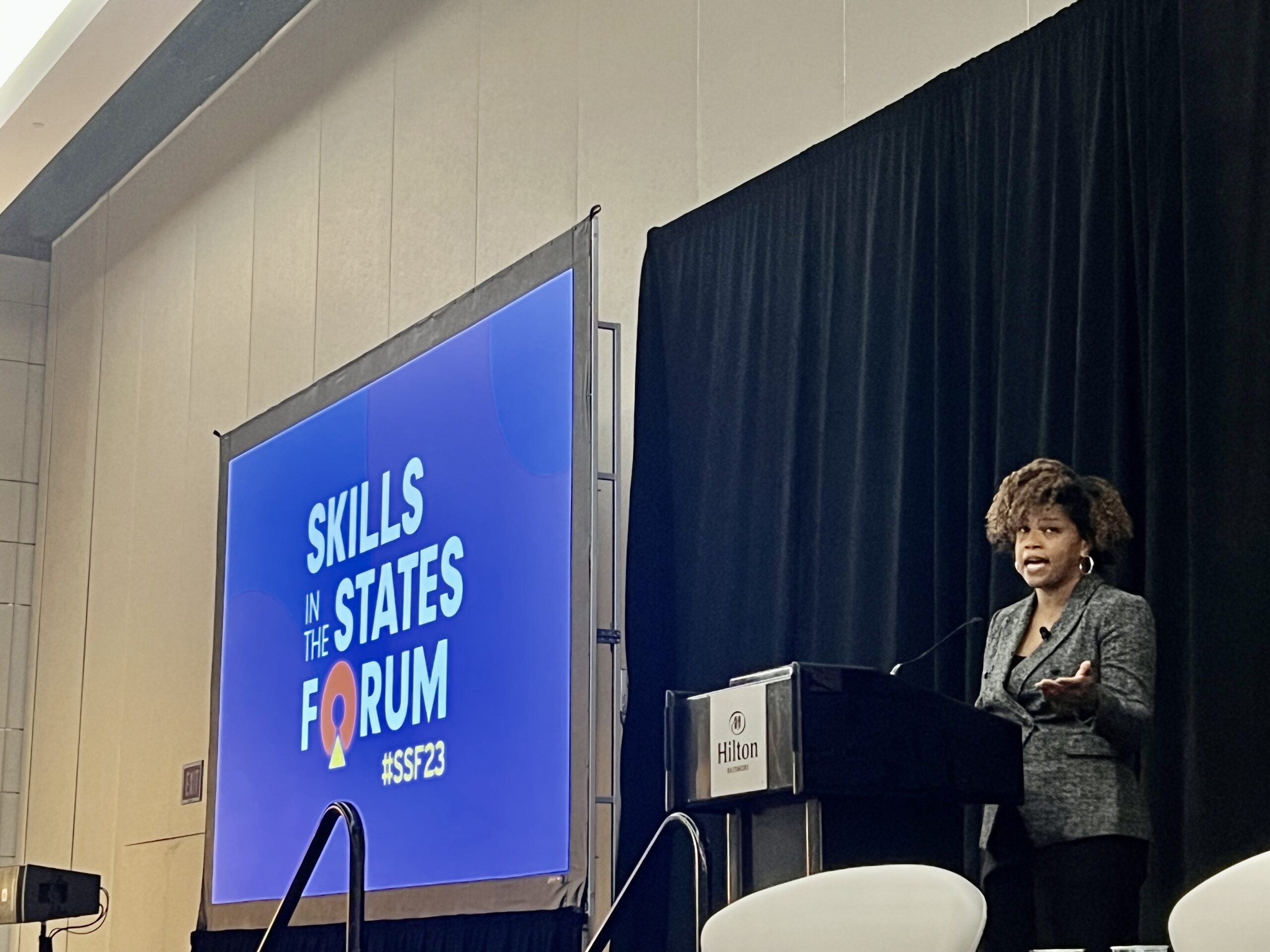The Skills in the States Forum recently hosted by the National Skills Coalition brought together professionals from all over the country in the workforce, government and education sectors as well as those supporting them through credentialing and other related services to talk about trends, best practices and innovative solutions. Much of the conversations focused on the forthcoming infrastructure funding addressing energy and power infrastructure, access to broadband internet, water infrastructure and more.
While we heard that the need for workers will be greatly increasing, the capacity at workforce organizations will not. Over the last couple of years, Congress has been having conversations about the reauthorization of the Workforce Innovation and Opportunity Act (WIOA), the legislation that is “designed to help job seekers access employment, education, training, and support services to succeed in the labor market and to match employers with the skilled workers they need to compete in the global economy” (https://www.dol.gov/agencies/eta/wioa).
States are now updating their four-year plans for how they implement WIOA funding and reconsidering their career pathways plans. One major barrier to employment identified by multiple speakers was childcare. This essential need has been recognized in some federal legislation, such as the CHIPS Act.
One worrying statistic is that 1.7 million infrastructure workers are expected to leave the workforce each year over the next 10 years. Known as the “silver tsunami,” this trend will further exacerbate the already-existing worker shortage that is already a hot topic of conversation among internet service providers and federal agencies charged with implementing the Infrastructure Investment and Jobs Act programs.
To combat this, programs are implementing creative ways to recruit workers, such as pre-apprenticeships that allow participants to explore a trade prior to committing to a full apprenticeship, ambassador programs where apprentices are conducting outreach to extoll the benefits of apprenticeships and teacher externships so they can learn about jobs in the skilled trades and better recommend potential career paths for their students. Companies are also innovating their training approaches to include remote training using virtual reality to train apprentices and then verifying they successfully mastered the lesson using Go Pro headsets at the job site.
Another recurring theme at the forum was collaboration. As Jamal Jessie, Workforce Development Manager with Georgia Power pointed out, “Siloes don’t scale.”
This short but powerful statement provided further inspiration for our ecosystem-building efforts. Our work often intersects and relies on workforce development, and we apply our same “solutions lab” approach to these issues through our digital inclusion and emerging innovation programs.
See a detailed recap of the Skills in the States Forum from the National Skills Coalition here.

